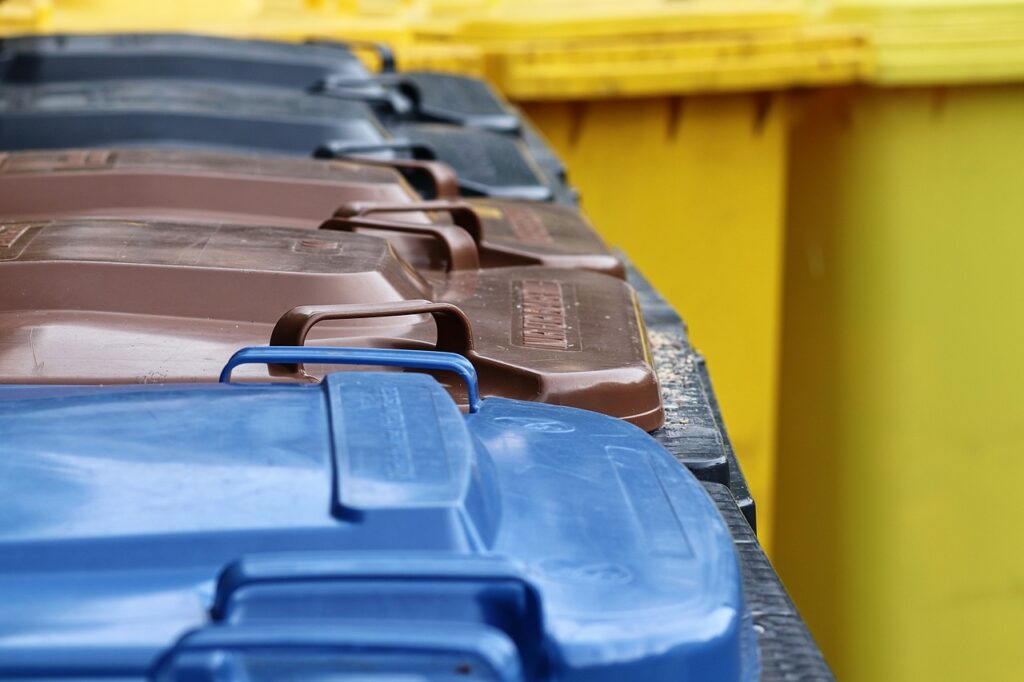An average person in the UK throws away about 400kg of waste each year; seven times their body weight. Consumerism culture has resulted in extremely high rates of purchasing, which has led to an increased turnover of items being thrown away.
However, public awareness of the importance of waste management is rising due to the growing concern over environmental and climate issues, and fortunately, the UK has taken huge strides in combating the waste pile increasing year after year.
In the UK, waste collection is supported by an efficient (made up of mostly private companies) service system, whereas local government authorities enjoy a certain degree of independence, and can offer solutions to specific local needs. So, let’s unpack what general waste is.
What is General Waste?
General waste, also called residual waste, is material that is produced by businesses and households that cannot be recycled. It includes materials such as non-recyclable plastics, polythene, some packaging and kitchen scraps.
In the past, this waste had been disposed of at landfill sites and some general waste is still disposed of in this way. But advances in technology now mean that there are numerous alternative ways of dealing with general waste, which can ensure that value – usually in the form of energy – is recovered from it.
Each individual property is entitled to present one general waste bin for collection on the relevant collection day.
Materials you should place in your general waste bin are:
- Tissues, napkins and kitchen towels
- Polystyrene and polythene
- Carrier bags
- Soiled fast food containers, pizza boxes and sweet wrappers
- Oil or fat from food preparation or cooking
- Cigarette ends
- Cat litter, animal faeces
- Nappies
- Bedding
- Broken crockery or glasses
- Cotton wool and buds
- Contents of your vacuum cleaner
What can’t go in your general waste bin:
- Medical caste
- Paint cans, motor oil, wax or petroleum
- Rocks, bricks and gravel
- Electrical goods (WEEE)
- Hazardous waste
What colour bin is general waste?
The general waste bin is usually either black or brown, but colours can vary across the UK. Check your local council’s website to make sure.
What can I put in a general waste skip?
Skips are versatile containers that can hold many types of waste. However, due to legal restrictions, there are certain types of waste that can’t go into a skip. They need to be stored in different containers so that they can be collected and disposed of separately and safely and in the most environmentally friendly way possible. Here’s a list of what can go into a skip:
- Wood
- Plastics
- Metals
- Paper and cardboard
- Bricks
- Rubble
- Concrete
- Non-contaminated soil
- Garden waste
What can’t go in a general waste skip includes fridges and freezers, plasterboard, asbestos, tyres, batteries, fluorescent tubes or WEEE waste items, aerosols and gas canisters, oil, liquids, contaminated soil.
Can you take general waste to the tip?
If you have household waste that cannot be disposed of with your regular collection, you can take it to a tip. These tips are also known as Household Waste and Recycling Centres (HWRCs).
Tips can accept a range of waste types, including bulky waste and electrical items. However, there are restrictions and charges for some types of waste, for example, plasterboard and asbestos.
What you can take to the tip without restrictions or charges:
- Aluminium
- Baths
- Batteries
- Bedding, quilts, pillows and sleeping bags
- Car batteries
- Cardboard
- Carpets
- Clothing
- Foil
- Fridges and freezers
- Furniture
- Garden waste
- Mobile phones
- Scrap metal
- Textiles
- Wallpaper
- Wood
Why choose our general waste collection service?
- Same day rubbish removal services
- Excellent customer service
- Fully trusted and vetted team
- Reliable and hassle-free collections
- Waste carrier licence certified
- No call out charge
- Free no-obligation junk clearance quotes offered
Be sure to contact our team for more information.
Feature image photo by manfredrichter / Pixabay.
